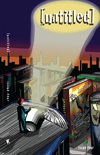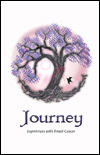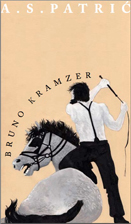

Blog
Welcome to the Busybird blog, where you can find helpful articles, updates, industry news and more. Make sure you stay up to date by signing up to our newsletter below.
Launch.
May 14, 2013 Whilst Busybird has been around for over fifteen years, for the bulk of that time we were a business focused on design and photography. Our evolution into publishing has been recent – since late 2008, when we decided to begin our own fiction anthology, which everybody would know as [untitled].
Whilst Busybird has been around for over fifteen years, for the bulk of that time we were a business focused on design and photography. Our evolution into publishing has been recent – since late 2008, when we decided to begin our own fiction anthology, which everybody would know as [untitled].
Since then, we’ve produced five issues of [untitled], two issues of page seventeen, as well as the nonfiction anthology Journey: Experiences with Breast Cancer (a portion of proceeds going to BreaCan and WHOW) and the children’s book Who’s a Cheeky Monkey? (with all proceeds going to Destiny Rescue). 
We’re now working on a sixth issue of [untitled], a companion book to Journey about prostate cancer (for which we’re still trying to find a perfect title – please email us if you have a idea), and have a host of other great projects in the pipeline.

We’ve also helped a number of authors self-publish their own books, providing services ranging from editing to layout to design. If there’s one thing we love, it’s stories, and helping people get out their own stories.
The next step in our evolution is the opening of our studio. We moved in several weeks ago, and have been working hard on making it home. Here you’ll find the Busybird team, as well as the books we’ve worked on. Feel free to drop in to chat about our projects or the services we can provide. We’re also going to be hosting a whole assortment of great workshops.
Otherwise, please join us for the Grand Opening of our studio this Thursday, 16th May, from 7.00pm. We also have on display the exhibition, In the Suburbs of the Heart, by linvanhek, which will be launched by poet/musician Joe Dolce. The exhibition will run from 16th May–6th June.

Details:
Busybird Studio:
2/118 Para Road
Montmorency 3094
(Melway reference 21 B5)
For catering purposes, please RVSP Blaise by email us or call 0416 157 281.
A Vignette with A.S. Patric.
May 9, 2013How/why did you get into writing?
If literature is a mirror on life, writers are the kinds of people that don’t really see themselves in sheets of glass or mirrors. I grew up in the western suburbs of Melbourne but I saw my reflection more clearly in Russian novels from the nineteenth century or American Science Fiction from the 1960s and 70s. At some point a reader understands that life is a narrative and that it’s possible to find a bit of authority over you own story if you start writing.
Do you plan out your story, or work it out along the way?
There are writers that say they need to map it all out before they set out on the journey. Otherwise they might lose their way – realising after they’ve gotten from point A to point B that point C is nowhere. They lose weeks or even years in a literary wilderness that might have been avoided with better preparation. For me, the wilderness is the whole point (A, B and C). That sense of peril in the writing can’t be faked, and peril is what sets the blood coursing through sentences. The reason we go out into the wilderness is so that we can return with something on the page that hasn’t already been domesticated.
Any writing habits which help you write?
Writing is itself a habit. Like every habit, it gets stronger the more it’s done. I write every day. Sometimes I write from sunup to sundown but it’s never less than an hour every day.
What do you love about writing?
According to Chuang Tzu a rabbit trap exists because of the rabbit and once you’ve caught the rabbit you can forget the trap. He goes on to say that a word is a trap and meaning is the rabbit. Once you’ve got the meaning you don’t need the word anymore. What I love about writing is building these diabolical machines that are essentially traps for much larger beasts. Some have been known to trap full grown men and women.
Anything you hate about writing?
It’s a sad fact that only a few writers in Australia (it is less than a one in a million deal, statistically speaking, maybe even one in two million) who make as much from novels annually as a garbage collector does for picking up bins. Almost all writers make far, far less than Tim Winton and your local garbo.
Any tips for other writers?
Reading is essential. Reading for pleasure. Reading for edification. Reading broadly. Reading deeply. Reading as religion. In terms of writing tips though, all any writer ever need read is the Paris Review Interviews. There are four volumes in book form and even more Q&As online. It’s such a vast literary resource you’ll never need to go anywhere else for writing tips.
You’ve got a couple of short story collections out at the moment — how do you feel about the short story form?
I feel like I’m living in the short story Renaissance. This is slightly offset by the death throes of Literature. Well, at least, that’s something I keep hearing from all quarters. I don’t think it’s true but there’s no doubt that it’s a time of turbulent change and I’d say that the short form is best suited and most able to adapt to the new opportunities and possibilities.
What’re you working on at the moment?
I was delighted to be able to put the final touches recently to Life on Crumbs, a novel I’ve been working on for the last five years. And excitingly, I’m going through the proofs of a novella which will be released in October 2013. The book’s publisher is Finlay Lloyd and it’s called Bruno Kramzer (top).
And the winner is …
May 1, 2013Oh boy, there’s so much happening here at Busybird HQ at the moment and May is going to be the biggest month as we open our doors to the public today at our studio gallery. Our own Les Zig is now officially our Publications Manager and he’ll be keeping you all up to date with what is happening.
BUT, for some of you reading this post, you may not care so much about any of that because you’re waiting to hear about our [untitled] short story competition. So, here are the results. We’d like to congratulate these people:
First ($500): ‘The Regatta’, Luke Thomas
Second ($250): ‘The Human Child’, Adrienne Tam
Third ($125): ‘She’s All Broken’, Peter R Hill
Commended: ‘Rollerbaby Queen’, Venetia Di Pierro
Commended: ‘Niall’s Edge’, Suzannah Marshall Macbeth
These stories will be published in issue 6 of [untitled] which is due out in June. Prizes for the competition will be presented at the launch, date to be advised.
I’d like to thank our editing committee (Les Zigomanis, Daniel Kovacevic, Jodie Garth, Helen Krionas, Danielle Gori, and Beau Hillier) for their dedication to reading all the stories entered into our competition.
The Short List
April 15, 2013After much deliberation, we’ve narrowed down the stories to this shortlist for the [untitled] short story competition for 2013. Winner will be announced on 1 May.
Congratulations to these people:
‘Hope Corporation’, Tim Napper
‘Niall’s Edge’, Suzannah Marshall Macbeth
‘Rollerbaby Queen’, Venetia DiPierro
‘She’s All Broken’, Peter R Hill
‘Slipway’, Kate Elkington
‘Start at the Beginning’, Grant Wales
‘The Human Child’, Adrienne Tam
‘The Regatta’, Luke Thomas
The Right Tools
April 9, 2013How many of you out there have a favourite pen to write with? Any type of art form (writing, painting, photography) has tools available to create the art. And some of us get a little OCD about our tools. I like a particular pen with a particular type of lined paper. The lines can’t be too bold and the paper needs to be smooth. I’ll search through shops for the perfect notebook and I have a good collection of them scattered around the house.
Same goes with a camera. The body of the camera needs to have a certain weight and feel in my hands. Despite the iPhone having a very good camera, I can’t seem to manage very good photos with it and I think it’s because, to me, it doesn’t have that camera feel. And yet, Kev can produce top quality shots every time. In fact, you’d be amazed that they’ve been taken on an iPhone.
So what’s my point, you may ask?
Surround yourself with the best tools to suit the way you work. Be indulgent. Don’t hold back when you create the best conditions to help you produce the best work ever. If this means searching the country for the perfect notebook or hanging onto that old camera for sentimental reasons or if you like to burn essential oils while you work. Do it.
Creating art is as important as having the finished product. This creation is a journey in itself. And if your tools aren’t doing it for you, then get cracking and experiment with them. Go to workshops, join a writing group, go on an expedition. Take an art class, ask questions, explore.
The world is waiting …
Blaise
